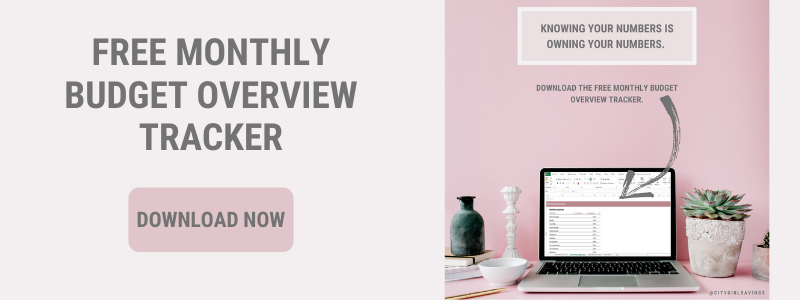Nobody’s perfect. I’m a money coach who specializes in budgeting, and I don’t always get it right with my budget and spending. Some months I’m over budget, other months I’m WAY over budget. One thing I never do though, especially when I’m over budget, is give up. I never toss my budget to the side. I figure out how to bounce back financially and get on the right track.
A lot of the women I’ve worked with had a bad habit of throwing their budget out the window when things didn’t go according to plan. That’s a recipe for things to go even further south. Throwing in the towel because of one bad spending day can lead to a bad spending week, or month! Then, next month, you’re trying to undo all the unnecessary damage.
If you struggle with knowing how to bounce back when you’ve blown your budget, I’m here to shed some light! Each of the tips and strategies I’m going to share with you will help you get back on financial track when things don’t go according to plan with your budget. Remember, it’s much easier to bounce back from a bad day’s worth of spending than a bad month’s worth of spending!
How to Bounce Back When You’ve Blown Your Budget
Acknowledge What Happened Without Guilt
This step is critical! It’s so easy to blame ourselves for mistakes, but that doesn’t do us any good. We can’t change it! Blowing your budget doesn’t define your overall success with money. How you respond, learn and grow is what counts. When you’ve blown your budget, take some time to reflect on what happened. Try to be as objective as possible here.
What triggered the overspending? What could you have done differently? How can you learn from this scenario so you don’t repeat it in the future? Was it a huge sale? An unexpected purchase or shopping after an emotional day? The more you can pinpoint the things that caused you to derail your budget, the more you can work to avoid them in the future.
I just want to remind you that NOBODY is perfect, with budgeting or anything else in life. I’m a full-time budget coach and I don’t always get it right! Mistakes are how we learn and grow. Don’t beat yourself up when things don’t go how you want them to.
Review Your Current Financial Situation
One of the best ways to bounce back when you’ve blown your budget is by taking stock of where you stand after the fact. Get a snapshot of where you currently stand in your financial situation. How much did you overspend? Are any bills, expenses or other budget categories at risk?
To complete this review, check your account balances, review upcoming bills, and assess any available cash reserves. If you have bills that can’t get paid because of your overspending, pull what you need from savings to help cover the cost. If you don’t have savings, see if you can get a grace period on payments until your next paycheck.
The goal is to avoid using credit to help get you out of this bind. That will only push you further behind. Also, I encourage you to sit in the feeling. Recognizing this is not a position you want to be in again will help you avoid controllable overspending in the future.
Adjust Your Budget for the Remainder of the Month
Bouncing back when you’ve blown your budget means taking responsibility for your actions. Because you overspent, we have to make some adjustments to your budget for the rest of the month. First, prioritize your essentials. Make sure your fixed expenses (rent, utilities, and debt payments) aren’t in jeopardy.
Assuming you’ve already paid those bills or you have enough to pay them, you’ll transition your focus to cutting back non-essentials. Look at your discretionary spending categories and assess which ones can be reduced or eliminated to help make up for your overspending. Maybe you skip dining out, pause streaming subscriptions or put off any salon appointments.
This will only be temporary. The purpose is to make up any cash that was overspent during your budget blowout. You will always have the opportunity to regroup and start fresh with your budget next month.
Plan to Pay Yourself Back
If you had to pull from savings or use credit cards to get through the month, create a plan to pay yourself back as soon as possible. Add money back into savings to make up for any funds that were taken out to cover excess spending. If you used a credit card to pay for bills and spending, make a payment to cover those amounts.
Allocating a portion of your next paycheck, or finding ways to bring money in short-term will help you cover the shortfall. Don’t skip this step! Getting back on track with your savings and debt balances will keep up the momentum towards your financial goals.
Use the Experience as a Learning Opportunity
I touched on this earlier but I want to spend a little more time here. How can you take this experience, learn from it and make sure you don’t make the same mistake in the future? Figuring that out is what will get you results long-term with your money and budget.
You can start by asking yourself some reflective questions. Identify what worked and what didn’t work in your budget that caused overspending. Get clear on things you could have done differently that would have made an impact.
Use this experience as an opportunity to reach new levels in your personal finance journey. We’ll never be without mistakes, but we can always learn from them and make impactful adjustments for the future.
Get Back on Track Immediately
It’s very easy to use overspending once as an excuse to keep up the bad behavior. Thoughts like “well, I’ve already blown my budget for the month, who cares if I keep spending” can cause a lot more damage. If you’ve blown your budget, don’t make things worse by continuing to overspend.
Follow the steps in this article to get yourself back on track, and do so ASAP! Waiting until the next month or the next paycheck won’t fix the issue. You have to spend time reflecting, learning and maybe even sacrificing so you can get yourself back on track. Consistency and perseverance are critical as you learn to master your money and budget.
Related: How to Forgive Yourself for Bad Spending Behavior
It’s important to keep your focus on moving forward, not what you did wrong. Negative feelings or guilt will only keep you in a downward spiral. Instead, focus on forgiving yourself for the spending mishap and vow to get back on track!
What steps do you take to bounce back when you’ve blown your budget? When was the last time you experienced overspending with your budget? Share your thoughts and experiences in the Comments Section below!
-Raya
The CGS Team






